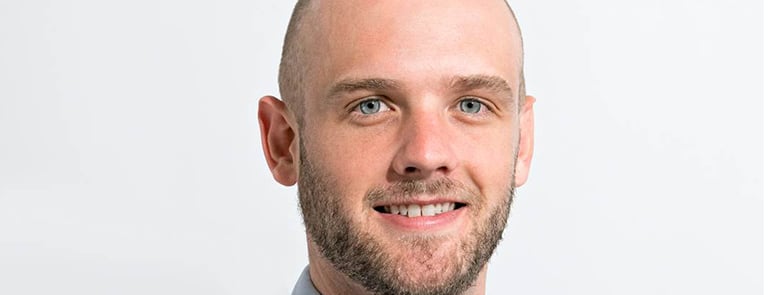Ben Murphy
Mechanical Engineer, Babcock International Group
Authenticity helps happiness
If you're able to come out, Ben Murphy says do so - it reduces stress and helps to form better colleague relationships. Employers need to do their bit though.
Mechanical engineer Ben Murphy writes about his experience as a gay man working for a STEM employer.
Tell us who you are and about your experience
I'm a mechanical engineer, employed by Babcock International Group's marine and technology division. Specifically, I contribute to the design and development of complex mechanical systems for naval environments.
I was recruited into the Australian graduate programme and have since relocated to our office in Bristol, UK. It's early days for my career but I've had the opportunity to work globally in a range of roles, such as in-service support, design engineering, R&D, and systems engineering.
I'm also the chair of Pride in Babcock, our recently launched LGBT+ supporters network. Our mission is to promote LGBT+ inclusion within the workplace. It's been an interesting experience which has afforded an opportunity to meet likeminded individuals across the business while making a positive, lasting contribution to the company.
Why is this important to you?
A common reason for remaining closeted at work is the fear of negative consequences, such as harassment, social stigma or, reduced opportunities. Visible LGBT+ role models challenge preconceptions about what it looks like to be successful in their field, making a refreshing counterpoint to this fear.
What challenges have you faced in your career?
From an LGBT+ perspective, my career has been relatively smooth sailing. There's always an attack of nerves when you join a new team and repeat the coming out process, but I haven't had a bad reaction yet. That's not to say it's an easy ride for everyone; I'm aware that as a masculine guy I'm afforded the privilege of choosing when to reveal that I'm gay. Not everyone can do that, which is one of the reasons it's so important to promote inclusive workplaces.
How does the profession need to progress / develop?
It's up to schools, universities, professional institutions and employers to work together to counteract the stereotypes which pervade STEM professions. We need to collectively challenge the narrative that STEM professionals look and act a certain way. In the professional world, business leaders are recognising the value of inclusive teams, which will hopefully flow through to a change in organisational culture. On an individual level, equipping people with the skills to confront discriminatory behaviour when they see it can make the workplace a more welcoming environment.
What one piece of advice would you give to others?
If you think you're able to come out at work, go for it. Being authentic at work reduces stress, and allows you to build closer relationships with your colleagues.














